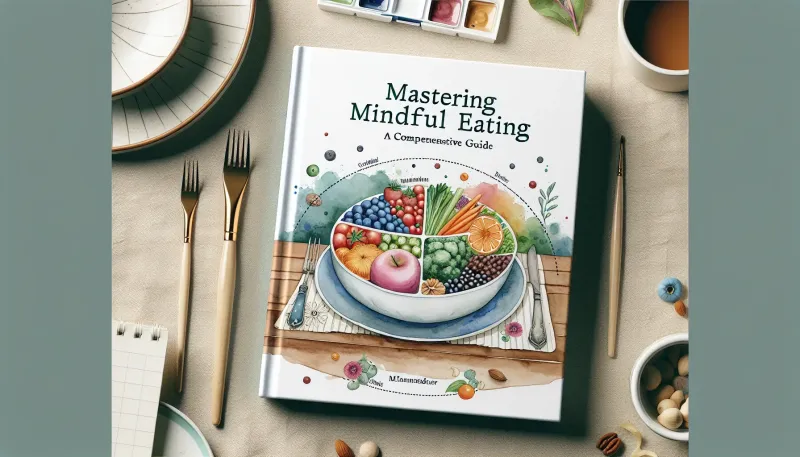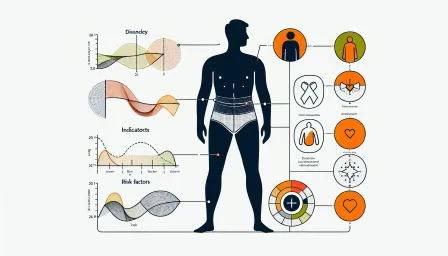Mastering Mindful Eating for Portion Control: A Comprehensive Guide

Learn to master mindful eating for portion control with our comprehensive guide. Discover tips and strategies to enhance your eating habits and overall health.
In today's fast-paced world, it's easy to overlook the importance of how we eat. Often, we focus solely on what we eat. Mindful eating for portion control addresses this imbalance by emphasizing awareness, presence, and intention while eating. This guide aims to help you understand the principles of mindful eating and how it can aid in portion control, thereby improving your overall health and well-being.
What is Mindful Eating?
Mindful eating is an approach that involves paying full attention to the experience of eating and drinking. This includes the sensations, thoughts, and emotions that arise during meals. Unlike traditional diets, which dictate what to eat and avoid, mindful eating focuses on how to eat. It encourages a deeper connection with food and helps individuals understand their hunger and fullness cues better.
The Importance of Portion Control
Portion control is a crucial aspect of maintaining a healthy weight and preventing overeating. Eating in portions that correspond to your nutritional needs helps avoid the excess intake of calories, leading to better weight management and a lower risk of chronic diseases such as diabetes and heart disease.
How Mindful Eating Enhances Portion Control
Mindful eating and portion control are interconnected. When you eat mindfully, you're more likely to recognize when you've had enough to eat, which naturally leads to better portion control. Here are some ways mindful eating supports portion control:
- **Awareness of Hunger and Fullness Cues:** Mindful eating helps you tune into your body's signals of hunger and fullness, making it easier to stop eating when satisfied.
- **Better Food Choices:** By being present during meals, you're more likely to make healthier food choices and avoid mindless snacking.
- **Reduced Emotional Eating:** Mindful eating helps address emotional eating by encouraging you to reflect on the reasons behind your eating habits.
Steps to Practice Mindful Eating for Portion Control
1. Create a Peaceful Eating Environment
Start by creating a calm and distraction-free environment for your meals. Turn off the TV, put away your phone, and focus solely on your food. A peaceful setting allows you to concentrate fully on the eating experience.
2. Engage All Your Senses
Take time to notice the colors, textures, and smells of your food. Engage your senses by savoring each bite and appreciating the flavors. This heightened sensory experience makes eating more enjoyable and fulfilling.
3. Chew Thoroughly and Eat Slowly
Chewing your food thoroughly and eating slowly helps in better digestion and allows your body to signal fullness more accurately. Aim to chew each bite around 20-30 times before swallowing.
4. Listen to Your Body’s Signals
Pay attention to your body's hunger and fullness signals. Eat when you’re genuinely hungry and stop when you're comfortably full, rather than overly stuffed. This practice helps in achieving natural portion control.
5. Evaluate Your Hunger Levels
Before eating, assess your hunger level on a scale of 1 to 10, with 1 being extremely hungry and 10 being very full. Aim to eat when you’re within the 3-4 range and stop eating when you reach a comfortable 7-8.
Common Challenges and Solutions in Mindful Eating
Social Situations
Eating mindfully in social settings can be challenging due to distractions and inattention. To counter this, try to focus on the conversation rather than the food, and eat smaller portions mindfully.
Emotional Eating
Many people turn to food for comfort during emotional distress. Mindful eating encourages you to recognize and understand these emotions without using food as a coping mechanism. Instead, find healthier ways to process and express your feelings, such as talking to a friend or engaging in a favorite hobby.
Benefits of Mindful Eating for Portion Control
Mindful eating has numerous benefits that extend beyond portion control:
- **Improved Digestion:** Eating slowly and chewing thoroughly aids in better digestion and nutrient absorption.
- **Enhanced Enjoyment:** Being fully present while eating increases your appreciation and enjoyment of food.
- **Weight Management:** Better portion control can lead to natural and sustainable weight loss or maintenance.
- **Reduced Stress:** Taking time to eat mindfully can be a form of relaxation, reducing overall stress levels.
Conclusion
Mastering mindful eating for portion control is a powerful practice that can transform your relationship with food. By incorporating the principles of mindfulness into your eating habits, you can enjoy your meals more fully, make healthier food choices, and better manage your portion sizes. Start with small steps, be patient with yourself, and gradually cultivate a mindful approach to eating. Your body, mind, and overall health will thank you.



























